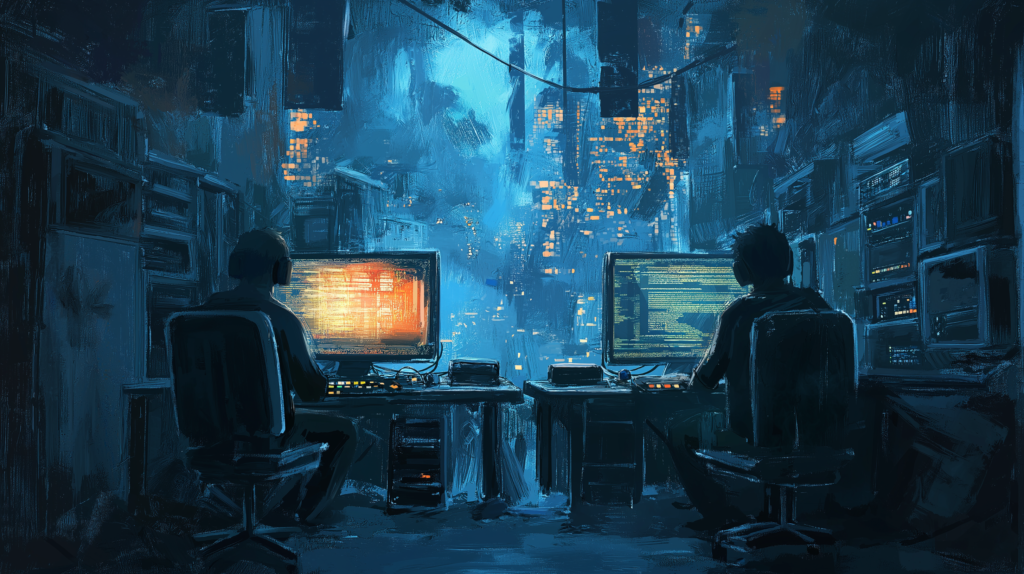Life can seem – and for many, it truly is – exhausting, meaningless, hard, boring (insert your own). People have always looked for ways to escape or forget, turning to things like psychotropic substances (alcohol, for example) or television. Lately, the younger generation has discovered the world of video games—a place where they can spend countless hours, make friends, and find like-minded souls. Sometimes, their virtual life becomes more important than reality.
It could be argued that video games are a better option than staring blankly at a TV screen – at least they require some brain activity and decision-making.
The Allure of the Game: A Dance of Dopamine
So, what makes these pixelated realms so irresistible? The answer lies deep within our brains, specifically with a neurotransmitter called dopamine. Often dubbed the “feel-good” chemical, dopamine plays a pivotal role in our experience of pleasure and reward.
When you achieve something in a game—be it slaying a dragon, solving a complex puzzle, or even just leveling up—your brain rewards you with a surge of dopamine. This isn’t just a minor pat on the back; it’s a full-on celebration in your neural pathways. Studies have shown that playing video games can lead to dopamine release in the brain, reinforcing the behavior and making you want to repeat it.
However, there’s a flip side to this coin. The brain’s reward system can be a bit too accommodating. The more it’s stimulated, the more it craves. Over time, this can lead to what’s known as dopamine desensitization, where the usual amounts no longer suffice, and one needs more gaming to achieve the same pleasurable feelings. This cycle can bear an uncanny resemblance to substance addiction.
The Double-Edged Sword of Gaming
But before we start demonizing video games, it’s essential to recognize that they’re not the root of all evil. Like any tool, their impact depends on usage.
On the positive side, gaming has been associated with several cognitive benefits. A study involving nearly 2,000 children found that those who played video games for three hours per day or more performed better on cognitive skills tests involving impulse control and working memory than children who had never played video games.
Moreover, the social aspect of gaming can’t be overlooked. Online multiplayer games offer platforms for individuals to connect, collaborate, and build communities. For many, especially those who might struggle with face-to-face interactions, these virtual worlds provide a sense of belonging and camaraderie.
However, moderation is key. Excessive gaming can lead to negative outcomes, such as sleep disturbances, increased anxiety, and, in extreme cases, gaming disorder. The World Health Organization has even recognized “Gaming Disorder” as a medical condition, highlighting the importance of balanced gaming habits.
So, computer games, like any form of entertainment, have their pros and cons. They can offer incredible experiences, cognitive benefits, and social connections. Yet, it’s vital to remain aware of the potential pitfalls and ensure that our virtual adventures don’t overshadow the richness of real life. After all, while slaying virtual dragons is exhilarating, facing and conquering the real world’s challenges brings unparalleled rewards.
The Power of Games: Fixing a Broken Reality
In Reality Is Broken: Why Games Make Us Better and How They Can Change the World, Jane McGonigal argues that games aren’t just escapism—they’re a powerful tool for improving our lives and society. According to her, the real problem isn’t that people are addicted to games but that reality itself often fails to provide the same sense of purpose, challenge, and reward.
McGonigal’s research reveals that games offer something reality often withholds: “blissful productivity”—the sense that your hard work is meaningful and leads to visible progress. In games, every small victory, every level-up, feels like a step toward mastery. Compare that to real life, where hard work can often feel unrewarded or unnoticed. Games give us clear goals, constant feedback, and an environment where failure isn’t the end—it’s just part of the process.
Moreover, McGonigal highlights that collaborative games can inspire social innovation. Large-scale multiplayer games require cooperation, strategic thinking, and problem-solving. She envisions a future where gaming isn’t a retreat from reality but a blueprint for solving real-world problems. Think of virtual worlds as training grounds for creativity and resilience—qualities we desperately need in the real world.
In fact, McGonigal’s own projects, like the game SuperBetter, have shown how gaming principles can help people recover from illness, build mental strength, and tackle complex life challenges. These “alternate reality games” blur the line between fiction and life, empowering players to face reality with the same energy they bring to virtual quests.
Could Games Save the World?
Imagine if we could take everything that makes games so addictively awesome and use it to tackle real-world problems. What if saving the planet felt as engaging as building your virtual kingdom? What if learning new skills was as fun as leveling up your character?
Maybe the solution isn’t to play fewer games – maybe it’s to make reality feel more like one. Until then, you’ll find me in my gaming chair, saving virtual worlds one quest at a time. Because sometimes the best way to face reality is to take a little break from it first.


